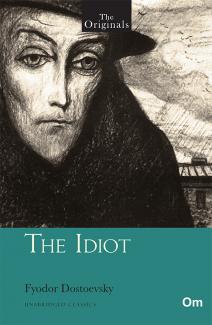THE ORIGINALS THE IDIOT (UNABRIDGED CLASSICS)
Availability :
In Stock
₹ 319.95
M.R.P.:₹ 395
You
Save: ₹75.05 (19.00% OFF)
(Inclusive
of all taxes)
Delivery:
₹ 0.00 Delivery charge
Author:
FYODOR DOSTOEVSKY
Publisher:
OM BOOKS INTERNATIONAL
ISBN-13:
9789352766741
Publishing Year:
2018-11-22
No. of Pages:
624
Weight:
450 grm
Language:
English
Book Binding:
Paperback











